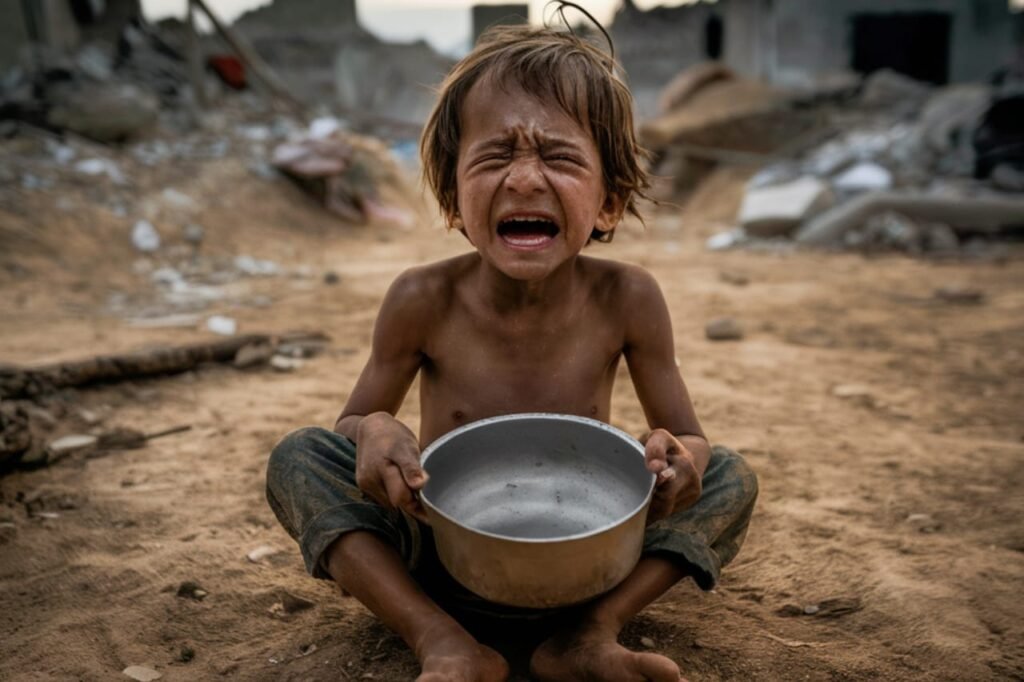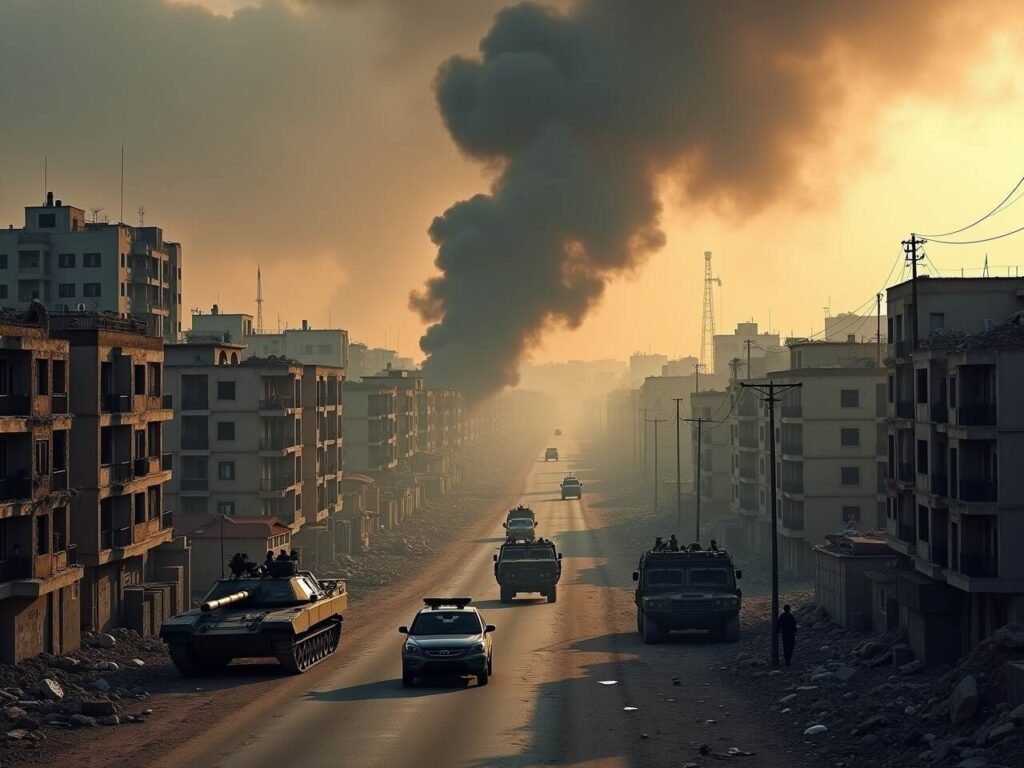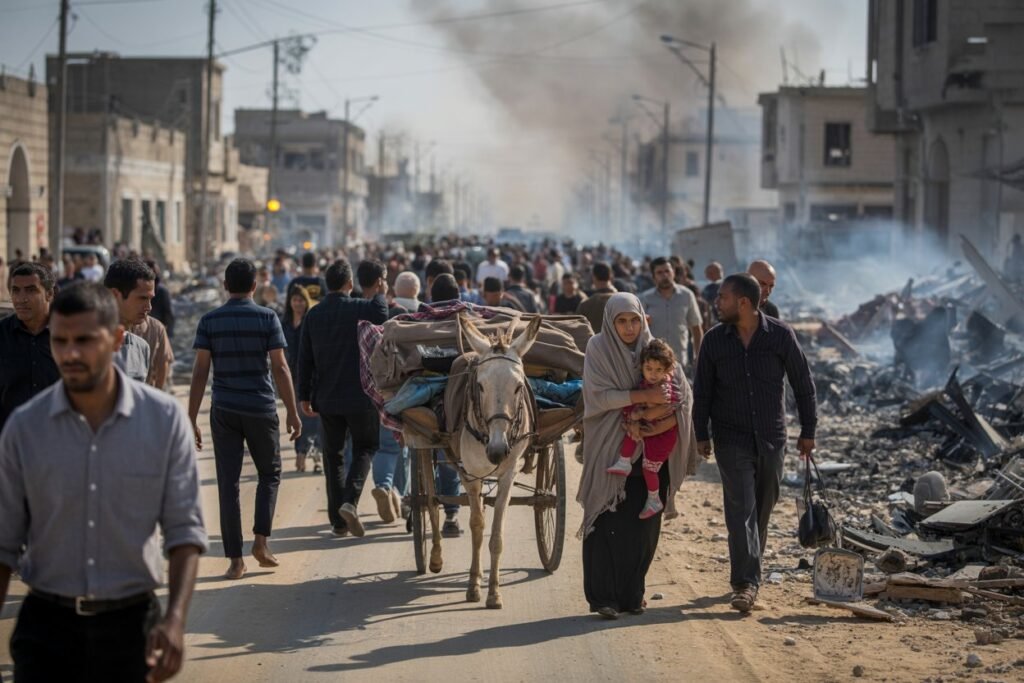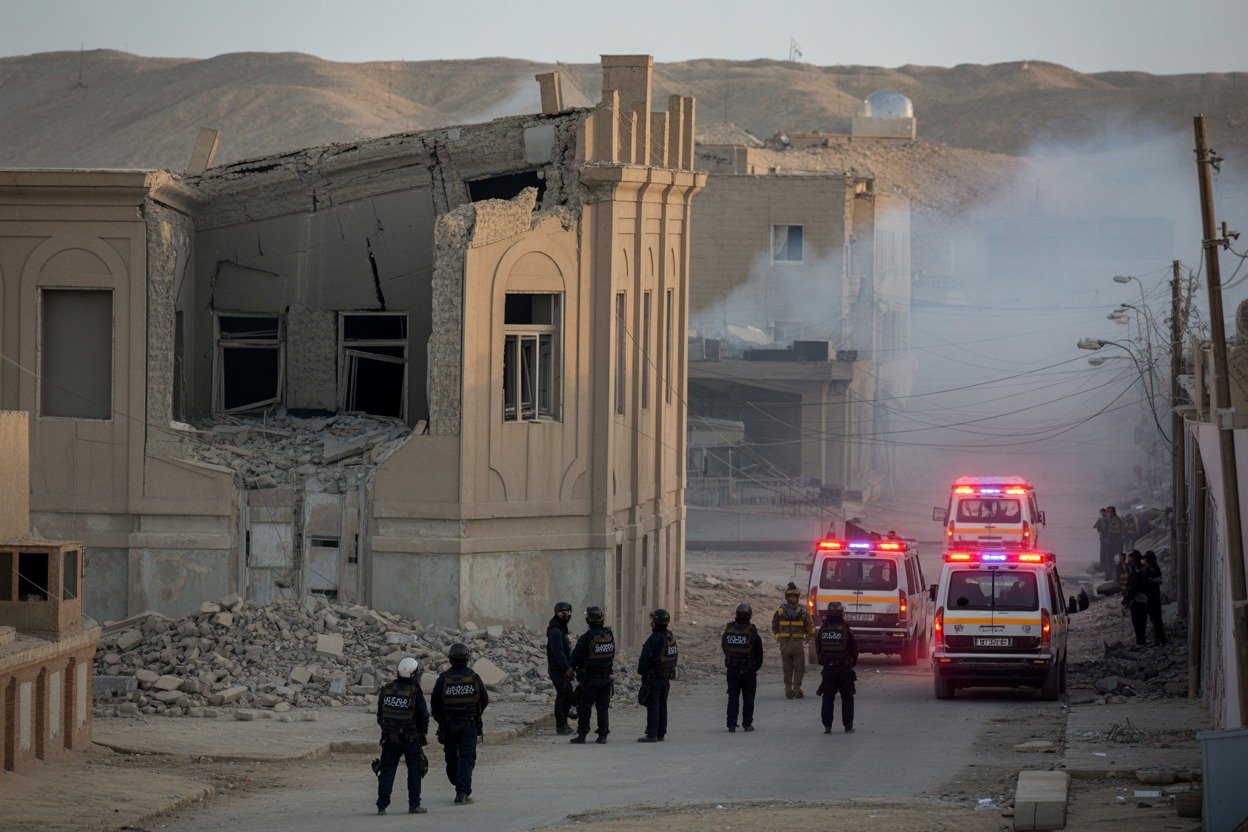- Home
- ScienceDiscover the latest updates from across the United States, including politics, culture, economy, and trending stories. Stay informed on the key events shaping the nation and the topics everyone’s talking about.
- EconomyOur Economy page provides comprehensive reporting on international financial systems, trade dynamics, development economics, and macroeconomic policy. Drawing on expert analysis and institutional data, we illuminate the interconnected nature of global markets and their real-world implications for governance and inequality.
- HealthWe examine global health issues through the lens of policy, access, equity, and innovation. From pandemics and healthcare infrastructure to mental health and biotechnological breakthroughs, our health reporting is rooted in empirical data, expert insight, and a commitment to understanding health as a cornerstone of human development.
- HistoryThis section revisits critical junctures in world history, emphasizing the relevance of historical events in shaping present-day global affairs. Through scholarly narratives and fact-anchored storytelling, we uncover the often-overlooked patterns, power structures, and human decisions that have left a lasting imprint on international relations and societies.
- PoliticsOur Politics section offers in-depth analysis of international political developments, ideological movements, and institutional shifts. With a focus on global governance, diplomacy, and geopolitical strategy, we provide nuanced reporting that transcends partisan narratives and situates events within their broader historical and structural contexts.
- War & ConflictThis section delivers meticulous coverage of international conflicts, civil wars, military strategies, and peace negotiations. We prioritize geopolitical context, long-term impact, and the role of state and non-state actors—eschewing sensationalism in favor of sober, historically informed analysis.
- TechnologyWe critically examine the global technology landscape—from artificial intelligence and cybersecurity to digital policy and ethical innovation. Our reporting focuses not just on what is being built, but why it matters: how technological change influences governance, economy, security, and human life on a planetary scale.
- Features
- Home
- ScienceDiscover the latest updates from across the United States, including politics, culture, economy, and trending stories. Stay informed on the key events shaping the nation and the topics everyone’s talking about.
- EconomyOur Economy page provides comprehensive reporting on international financial systems, trade dynamics, development economics, and macroeconomic policy. Drawing on expert analysis and institutional data, we illuminate the interconnected nature of global markets and their real-world implications for governance and inequality.
- HealthWe examine global health issues through the lens of policy, access, equity, and innovation. From pandemics and healthcare infrastructure to mental health and biotechnological breakthroughs, our health reporting is rooted in empirical data, expert insight, and a commitment to understanding health as a cornerstone of human development.
- HistoryThis section revisits critical junctures in world history, emphasizing the relevance of historical events in shaping present-day global affairs. Through scholarly narratives and fact-anchored storytelling, we uncover the often-overlooked patterns, power structures, and human decisions that have left a lasting imprint on international relations and societies.
- PoliticsOur Politics section offers in-depth analysis of international political developments, ideological movements, and institutional shifts. With a focus on global governance, diplomacy, and geopolitical strategy, we provide nuanced reporting that transcends partisan narratives and situates events within their broader historical and structural contexts.
- War & ConflictThis section delivers meticulous coverage of international conflicts, civil wars, military strategies, and peace negotiations. We prioritize geopolitical context, long-term impact, and the role of state and non-state actors—eschewing sensationalism in favor of sober, historically informed analysis.
- TechnologyWe critically examine the global technology landscape—from artificial intelligence and cybersecurity to digital policy and ethical innovation. Our reporting focuses not just on what is being built, but why it matters: how technological change influences governance, economy, security, and human life on a planetary scale.
- Features
Now Reading: Gaza Aid Pause: Will This Urgent Move Save Lives?
-
01
Gaza Aid Pause: Will This Urgent Move Save Lives?
- Home//
- Science//Discover the latest updates from across the United States, including politics, culture, economy, and trending stories. Stay informed on the key events shaping the nation and the topics everyone’s talking about.
- Economy//Our Economy page provides comprehensive reporting on international financial systems, trade dynamics, development economics, and macroeconomic policy. Drawing on expert analysis and institutional data, we illuminate the interconnected nature of global markets and their real-world implications for governance and inequality.
- Health//We examine global health issues through the lens of policy, access, equity, and innovation. From pandemics and healthcare infrastructure to mental health and biotechnological breakthroughs, our health reporting is rooted in empirical data, expert insight, and a commitment to understanding health as a cornerstone of human development.
- History//This section revisits critical junctures in world history, emphasizing the relevance of historical events in shaping present-day global affairs. Through scholarly narratives and fact-anchored storytelling, we uncover the often-overlooked patterns, power structures, and human decisions that have left a lasting imprint on international relations and societies.
- Politics//Our Politics section offers in-depth analysis of international political developments, ideological movements, and institutional shifts. With a focus on global governance, diplomacy, and geopolitical strategy, we provide nuanced reporting that transcends partisan narratives and situates events within their broader historical and structural contexts.
- War & Conflict//This section delivers meticulous coverage of international conflicts, civil wars, military strategies, and peace negotiations. We prioritize geopolitical context, long-term impact, and the role of state and non-state actors—eschewing sensationalism in favor of sober, historically informed analysis.
- Technology//We critically examine the global technology landscape—from artificial intelligence and cybersecurity to digital policy and ethical innovation. Our reporting focuses not just on what is being built, but why it matters: how technological change influences governance, economy, security, and human life on a planetary scale.
- Features//
- Home
- War & Conflict
- Gaza Aid Pause: Will This Urgent Move Save Lives?
Gaza Aid Pause: Will This Urgent Move Save Lives?
Jhon SmithWar & ConflictJuly 27, 202513 Views
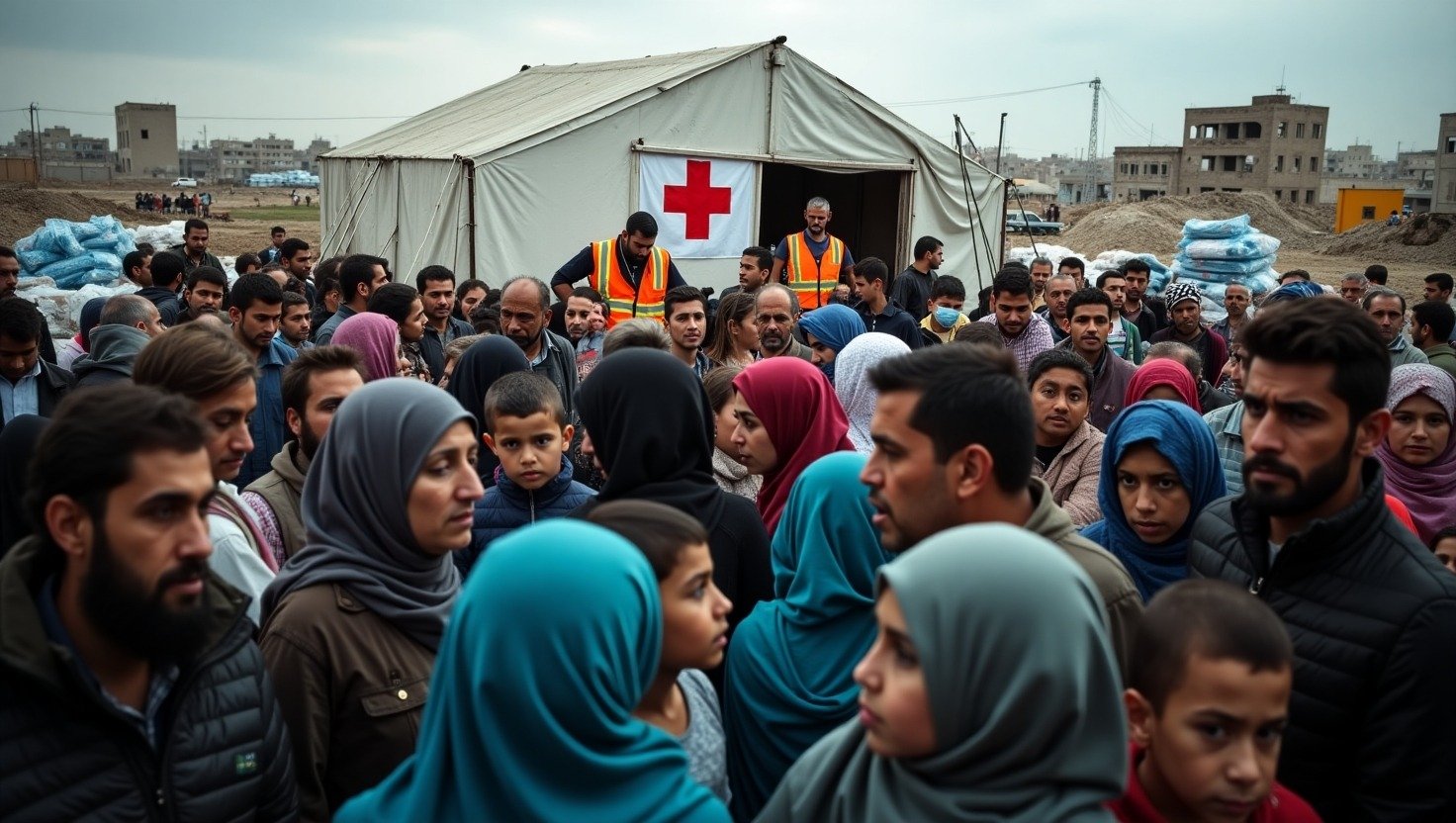
On July 27, 2025, Israel announced a 10‑hour daily pause in military operations across three Gaza areas—Gaza City, Deir al‑Balah, and Al‑Mawasi. The pause runs from 10 a.m. to 8 p.m. local time, intended to allow aid convoys and airdrops to deliver food and medicine. At the same time, humanitarian corridors operate from 6 a.m. to 11 p.m., offering safer routes for aid. This move follows mounting international pressure over mass starvation reports in Gaza (Reuters).
Aid groups say Jordan and the UAE dropped around 25 tons of food, including flour, sugar, and canned goods. Aid specialists emphasize that air deliveries cannot replace ground transportation, which is still the most critical channel.
Aid: Can the Pause Make a Real Difference?
The UN World Food Programme hopes this pause will help surge food aid into Gaza. According to the organization, available stock could support Gaza’s entire population of 2.1 million for almost 90 days. Yet aid delivery remains hampered by logistical challenges and unsafe routes (Reuters).
Meanwhile, Gaza’s Health Ministry reports 133 deaths from malnutrition, including 87 children, in recent days alone. Some infants, including a five‑month‑old, have died weighing less than at birth. These deaths underscore a worsening famine crisis even amid the pause (AP News).
Most Recommended:
- Zahedan Attack Kills 5 – What Iran Says
- Starlink Shutdown: Did Elon Musk Betray Ukraine?
- China Graphite Bomb Threatens Taiwan’s Power Grid
Israel Gaza Pause: Risks and Limits
While Israel presents these pauses as a humanitarian gesture, critics warn the move has significant limits. Even during the window, at least 17 people died waiting for aid due to continuing fire near distribution points. At least 53 Palestinians were killed in Gaza on the same day the pause began (Reuters).
Aid agencies argue that the pause does nothing to restore full access. Only a handful of UN crossings (around four) remain operational out of hundreds prior to the blockade. Aid is being delivered at less than 20% of the needed scale—fewer than 100 trucks daily compared to the 500 needed (AP News).
Humanitarian organizations like UNICEF, Doctors Without Borders, and the UN aid chief support temporary pauses but warn they are insufficient. They call for unrestricted access, immediate ceasefire, and significant scaling of aid delivery by land. They emphasize that starvation has become a moral crisis and must not be used politically (The Guardian).
Australia’s prime minister and foreign minister have condemned the blockade as a breach of international law and called withholding aid “morally wrong.” They reaffirmed support for ceasefire and humanitarian access (The Guardian).
Gaza Aid: Human Costs Behind the Numbers
Reports from Gaza hospitals describe tragic scenes. A five‑month‑old baby, Zainab, died from malnutrition, weighing less than at birth. Her mother was also critically malnourished and lacked access to special formula due to shortages. Doctors in Gaza are overwhelmed. They blame Israeli restrictions on aid and fuel for the collapse of medical care (AP News).
Health facilities suffer constant fuel shortages. Due to ongoing fuel shortages, hospitals are unable to operate their generators. Emergency vehicles, including ambulances, remain immobilized without fuel. Water treatment facilities have shut down as a result of power and resource shortages. Medical supplies like anesthesia, antibiotics, and bandages are blocked or delayed under dual‑use restrictions, crippling patient care. Many surgeries now proceed without proper drugs or equipment.
Aid Corridor Pause: Will It Save Lives?
The question remains: Will the Gaza Aid Corridor Pause save lives? On one hand, the pause provides safe periods for delivery and distribution of food and medicine. On the other hand, aid volume is still far too low, safe access is restricted, and deaths continue.
To truly alleviate the crisis, analysts argue Gaza needs:
- Unrestricted land access
- Greater aid volumes
- Security along delivery routes
- Longer or permanent ceasefire
Until these factors are resolved, the pause remains a partial measure, offering limited relief against an unfolding famine.












